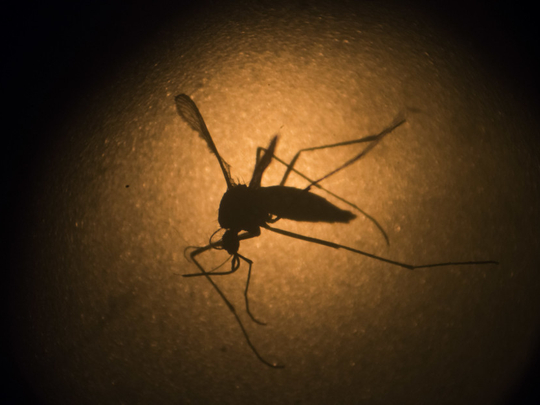
The New York Times is not entirely pleased with the way funds for Zika research are being handled. Says its editorial: “Nobody should be surprised when the present [US] House of Representatives, dominated by penurious reactionaries, produces a stingy response to a danger that calls for compassionate largess. But for sheer fecklessness, it’s hard to top the House’s response this week to the Zika virus. The salient feature is that in providing money to fight one health menace, it steals from other funds meant to fight an even more dangerous threat — the Ebola virus.”
“In February,” says the NYT, “President Barack Obama asked Congress for $1.9 billion [Dh6.98 billion] to help fight Zika. The House bill [approved last week] would provide $622 million.” While terming it a decent start, NYT questions the provisions of the bill. “The money in the House bill would be available only until the end of September, when the fiscal year ends. That cut-off seems to assume that Zika will no longer be a problem by then, an absurdly risky line of reasoning ... Cutting off funds that early would also severely hamper the effort to create a Zika vaccine ...”
The Boston Globe sounds the alarm against the backdrop of 503 travel-associated Zika cases as of last week in the US. “Congress’ inability to fully fund a coordinated response to the Zika virus stands alone because of the seemingly blatant disregard for public health involved. With the mosquito season just around the corner, it’s hard to see the delay on Capitol Hill as anything other than irresponsible. Money is not only needed for more research to understand the disease, but also to develop a vaccine and faster and better tests for Zika, as well as for mosquito control efforts,” the editorial says.
The Jamaica Observer urges the people of the country to stop being in denial of the dangers of the Zika virus. Says its editorial: “There is a clear and present need to minimise the presence of the Aedes aegypti mosquito, which spreads dengue, chikungunya and Zika viruses. Thankfully, after an annoyingly lengthy denial by some, available evidence suggests the great majority of Jamaicans now accept that mosquitoes are in fact the cause of dangerous diseases.”
Singapore’s Straits Times takes a pragmatic approach to the problem of Zika. While placing “some hope in research to find ingenious ways of killing off mosquitoes, like making them sterile via genetic modification” its editorial stresses that every citizen should take the “necessary precautions” and not leaving everything to the authorities. “Danger lurks in high-rise, dense urban settings, where pools of clean, stagnant water (favoured by the Aedes mosquito for breeding) are common. Potted plants on balconies, litter in public areas and poor drainage can offer millions of hidden opportunities for mosquitoes to multiply... Neighbouring countries ought to recognise the benefit of working closely with each other.”





_resources1_16a31069e4e_small.jpg)






